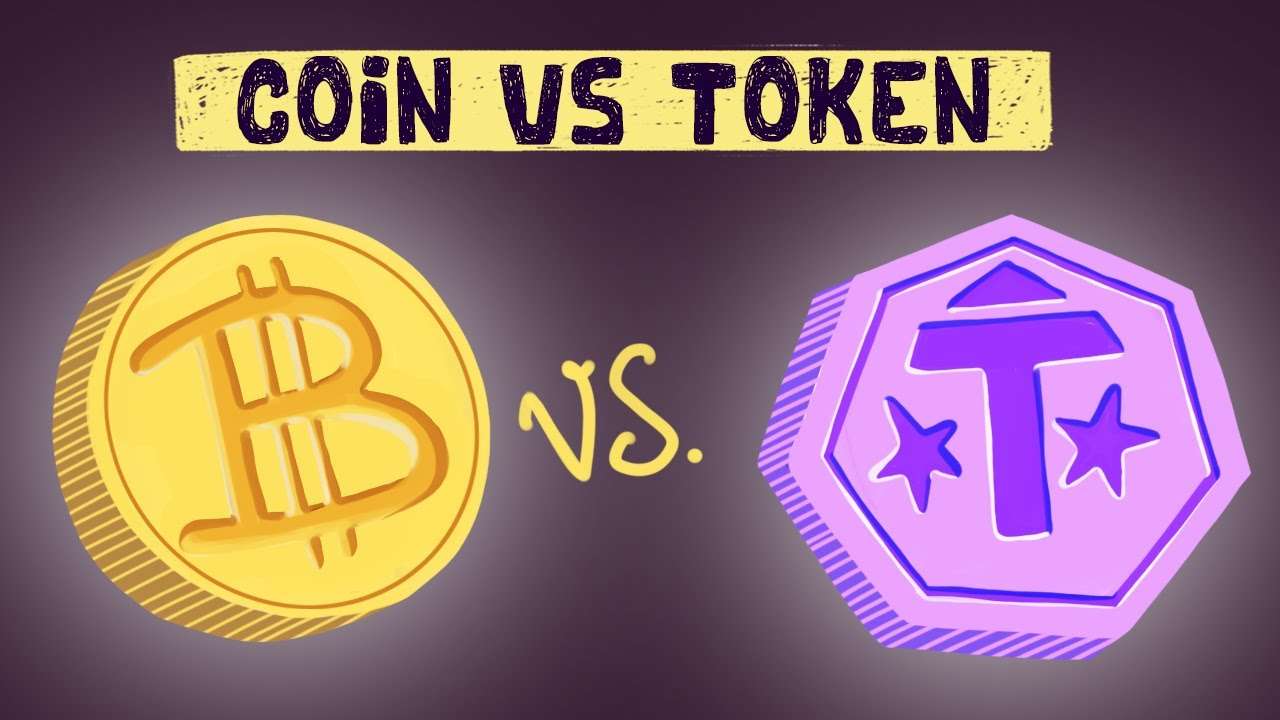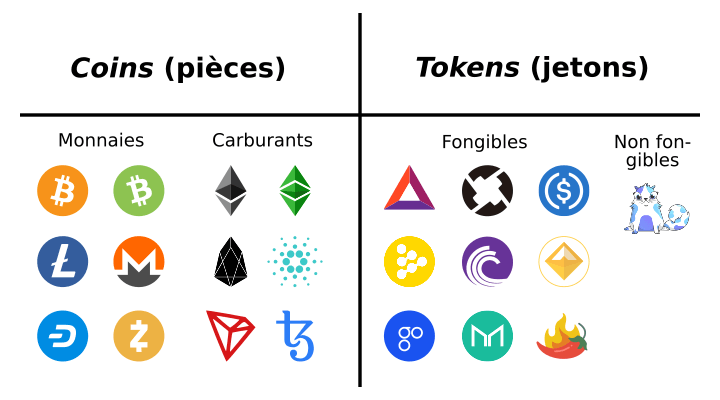What is the difference between Coin and Token

What a difference between Coin and Token in cryptography? Almost everyone confused a token with a piece (corner) at some point in his cryptocurrency journey. The point is that coin and token are fundamentally very similar. They both represent value and can process payments. You can also exchange coins against tokens and vice versa.
The main difference between these two comes down to utility. There are things you can do with tokens, not coins. On the other hand, some marketplaces will accept coins and not tokens.
In this post, Finance de Demain gives you the difference between a COIN and a Token. But before that, here are some Tips for succeeding in entrepreneurship

Get 200% Bonus after your first deposit. Use this promo code: argent2035
Let's go !!
🌿 What to know about corners or coins?
Le COIN refers to any cryptocurrency that has a self-contained, independent blockchain, such as Bitcoin.
These cryptocurrencies are seeded from scratch and the larger network is designed explicitly to achieve a certain goal.
For example, Bitcoin exists as a censorship-resistant store of value and medium of exchange that has a fixed and secure monetary policy.
Article to read: How to Develop a Crypto Trading Strategy ?
Bitcoin's native token, BTC (i.e. bitcoins), is the most liquid cryptocurrency on the market and has both the highest market cap and realized market capitalization in the cryptocurrency industry .
Coin projects usually take inspiration from past technologies or other cryptocurrencies and merge them into an innovative network that serves a specific purpose.
Another example of Coin, is Ether (ETH) is the native coin of a smart contracts platform for creating general-purpose computer programs that run on a decentralized blockchain.
Rather than focusing on financial data, Ethereum focuses on arbitrary program data that can cover anything from games to social media.
Ether is used to send/receive, manage assets, pay gas fees, and interact with decentralized applications (dApps) on the network.
⛳️ The characteristics of a Coin
A part is defined by the following characteristics:
1. Runs on its blockchain. A blockchain keeps track of all transactions involving its native cryptocurrency.
When you pay someone with Ethereum, the receipt goes to the Ethereum blockchain. If the same person later reimburses you with Bitcoin, the receipt goes to the Bitcoin blockchain. Each transaction is protected by encryption and can be accessed by any member of the network.
2. Acts like money. Bitcoin was created for the sole purpose of replacing traditional currency. The paradoxical appeal of transparency and anonymity has inspired the creation of other coins, including ETH, NEO, and Litecoin.
You can buy goods and services from many big companies today, such as Amazon, Microsoft, and Tesla, using cryptocurrencies. Bitcoin recently became an official currency of El Salvador alongside the US dollar.
3. Possibly mined. You can earn cryptocurrencies in two ways. One is traditional mining on the proof of work system.
The other method is Proof of Stake. She is a more modern approach to earning coins. It's lighter on power consumption and easier to do. Cardano is one of the biggest coins that adopts this system.
🌿 What to know about Token or tokens?
A Token is a digital unit of value that represents an asset or utility. Unlike corners, tokens do not have their own blockchain. They are transmitted over existing networks. They cannot be mined during the transaction validation process.
Instead of that, they are hit. The total number of tokens minted depends on different conditions set by the issuing project.
Tokens can perform different functions. They can be used to raise funds or provide access to particular services. Some tokens may even represent coins on a different network.
These tokens are called “ wrapped tokens and follow the price of the underlying asset. Another very popular type of token is a stablecoin. It is a token that tracks the course of the US dollar.
⛳️ Types of tokens
Tokens can be classified into three types: security tokens, equity tokens and utility tokens. All can be issued to finance the development of the project. Let's see what the characteristics and use cases of each type of token are.
👉 Security Tokens
A security token is a tokenized digital form of traditional security. Security token holders have no ownership rights in the entity that issued the tokens.
Article to read: How to use trading tools to improve your strategy?
Instead, they might have other rights attached to it. The tokens are sold in a public offering called a Security Token Offering (STO).

Get 200% Bonus after your first deposit. Use this official Promo code: argent2035
👉 Equity Tokens
Equity tokens are a subset of security tokens. They function like traditional stock market assets and provide ownership to token holders.
Holders are also entitled to a share of the company's profits and a right to vote on its important decisions. Equity Tokens are issued through an Equity Token Offering (ETO) process.
👉 Utility Token
Utility tokens allow their holders to access a specific application or services of a blockchain-based project.
Some utility tokens also offer additional discounts, rewards, or benefits to token holders.
A true utility token usually has no expectation of profit. If not, it's a hybrid of security token and utility. Utility tokens are usually issued through an initial coin offering (ICO).
👉 Payment Tokens
The sole purpose of payment tokens is to provide a means of payment. These tokens do not interact with blockchain-based applications in the unique way utility tokens do.
🌿 In summary
The difference between the token and the coin is not huge. But it can cause a major headache if often neglected. A quick way to decide which one to use is to be careful what you buy.
If it is a product, more often than not you would need parts. If it's a service, there are usually utility tokens you can use.
Article to read: Investing in cryptocurrencies: points to consider
Interestingly, the way we spend tokens is quite similar to money. When you pay cash, your money physically moves from your hand to someone else's.
But we mentioned that only the coins represent money and they don't move at all. Is this a way for financial marketers to play with our sanity?
It's something to think about the next time you're in a contemplative mood.



















Leave comments